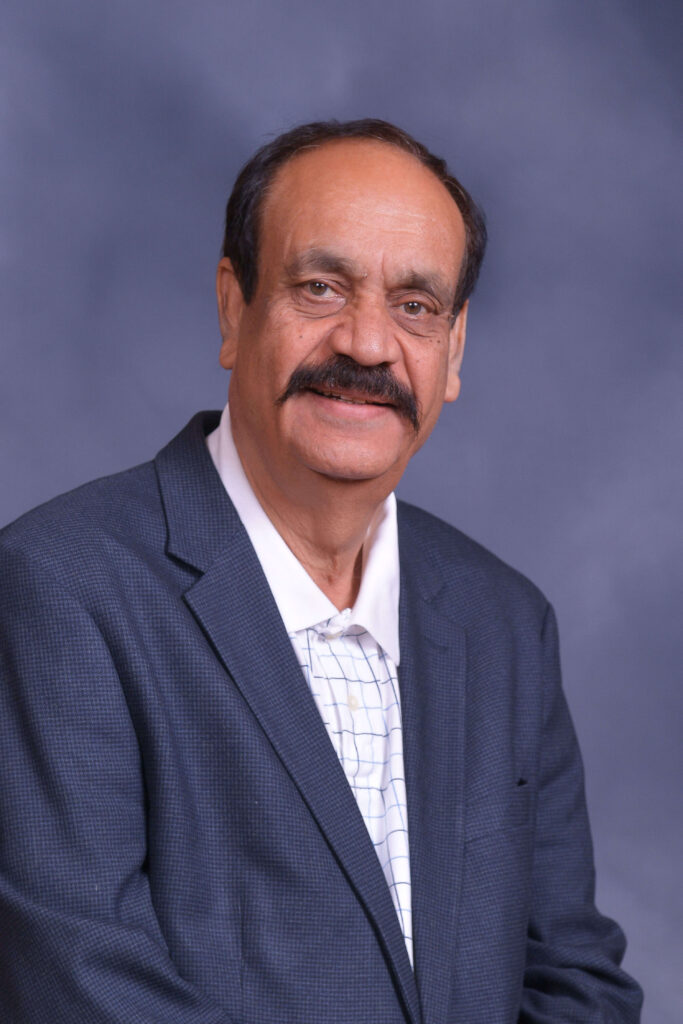Still at the Front Desk: Dinu Patel
On paper, Dinu Patel’s life reads like a list of extraordinary achievements. He is a Certified Hotel Administrator, has served on the Board of Directors of the American Hotel Motel Association and the Connecticut Lodging Association, and has been an integral leader of the Asian American Hotel Owners Association (AAHOA) since its earliest days. He has lobbied U.S. politicians on immigration reform, appeared on the cover of USA Today’s Money section, and served as President of the Gujarati Samaj of Connecticut. His influence has touched not only hospitality but also banking, small business, and international relations.
And yet, when I spoke to him recently, none of that was what defined him. As we talked on the phone, I could hear the motel bell chiming in the background. He politely excused himself three times—once to check in a guest, once to check someone out, and once to answer a simple question at the desk. At nearly 80 years old, this man with a résumé fit for the history books is still exactly where his journey began: inside the motel, working.
From Gujarat to America with Just $7
Born in Gujarat, India, in 1947, Dinu Patel earned a Master of Science in Organic Chemistry in 1973 before immigrating to the United States. He arrived with just $7–8 in his pocket, half of which he spent on candy for his niece in New York. His first days were difficult. Rent in Scranton, Pennsylvania, was $40 a month, more than he could afford without borrowing. His first paycheck at a mill factory was only $80 every two weeks.
Still, he climbed quickly—rising to foreman, earning his green card, and later pursuing a second master’s degree in Biochemistry from the University of Scranton. His dream at the time was modest: make $10,000 and return to India. That dream grew—$100,000, then $1 million—until America became home.
Forensics, Family, and the First Motel
In the late 1970s, Patel joined the Nebraska State Police as a Senior Criminologist, working in forensic science. But with the encouragement and partnership of his wife, he began experimenting in business: running a cleaning service, small enterprises, and eventually, a hotel.
By 1981, Patel had purchased his first property: Soo Paw Motel in Trenton, Nebraska. Soon after, he added another in Branford. In 1985, he relocated to Connecticut full-time with his wife and their two young children, to pursue hospitality as a career and to be closer to family.
From there, Patel’s portfolio grew. He invested in hotels, small businesses, banking, and even provided startup capital for other entrepreneurs. But through all of it, he never walked away from the motel floor.
“No Shame in Any Work”
When asked about his success, Patel doesn’t talk about money or status. Instead, he reflects on the dignity of labor:
“In India, a teacher never washes the floor. A banker never carries water. In America, there’s no shame in doing any work. That’s why we succeed.”
To this day, he folds sheets and makes beds at his independent motel in Connecticut. Not out of necessity, but out of principle—and, as he laughs, because “it keeps me healthy.”
Redefining Success
So when I asked him, “When did you feel like you had made it in America?” his answer wasn’t about a headline in USA Today or a New York Times feature.
“Every time I go to the bank. I don’t even know how much money I have, how many accounts I have. But I’m happy as can be. My wife and I are content. That’s success.”
The Legacy of Brotherhood
Beyond business, Patel has been a tireless advocate for the South Asian community in America. He helped facilitate the Indian Caucus in Congress, raised relief funds after the 2001 Gujarat earthquake, and organized countless cultural events through the Gujarati Samaj. He speaks often about the closeness of the first-generation motel owners—how they shared advice, opened doors, and lifted one another up. And he worries that younger generations are losing that sense of brotherhood.
A Motel Bell, Still Ringing
Dinu Patel’s story is one of grit, humility, and achievement beyond measure. But perhaps what makes it most powerful is its ordinariness. Even after decades of success, leadership, and national recognition, he is still the man behind the front desk—still answering the motel bell, still folding sheets, still living the lesson he’s carried since his first paycheck: there is no shame in any work.
And maybe that’s the real definition of having “made it.”


